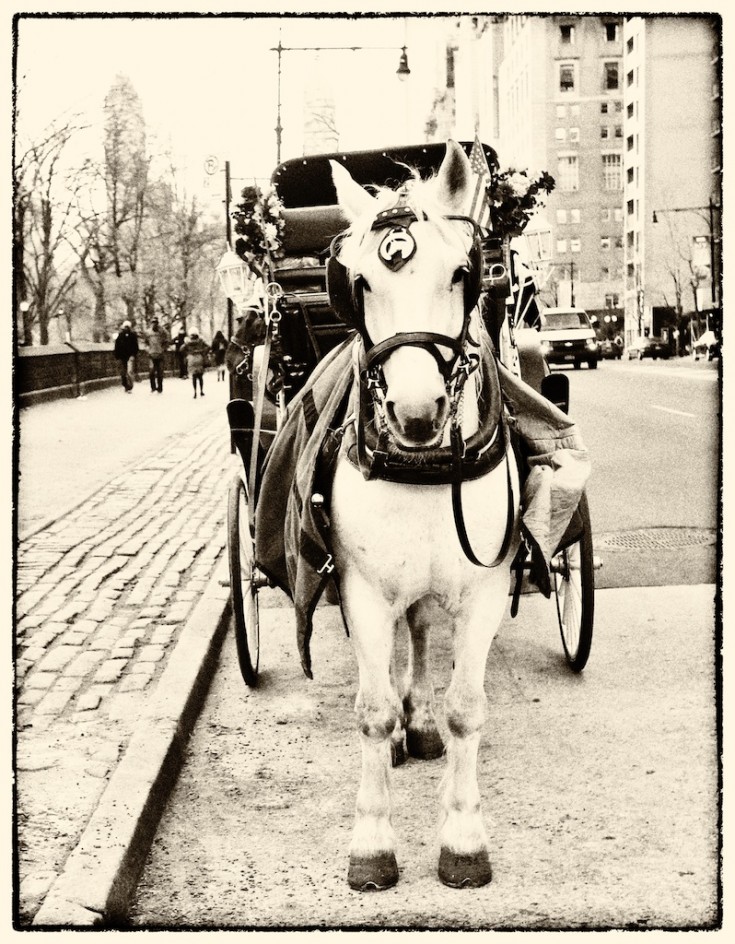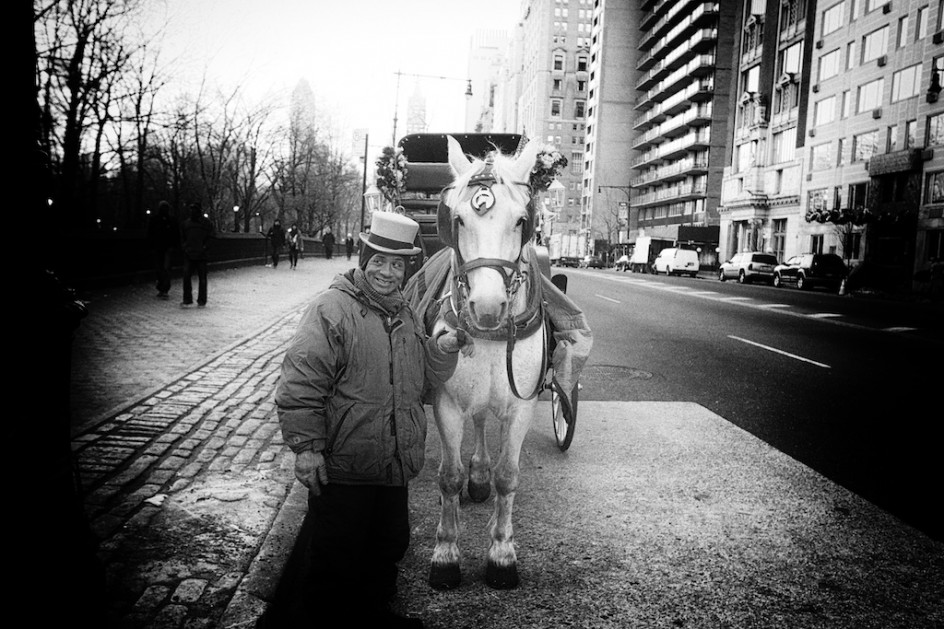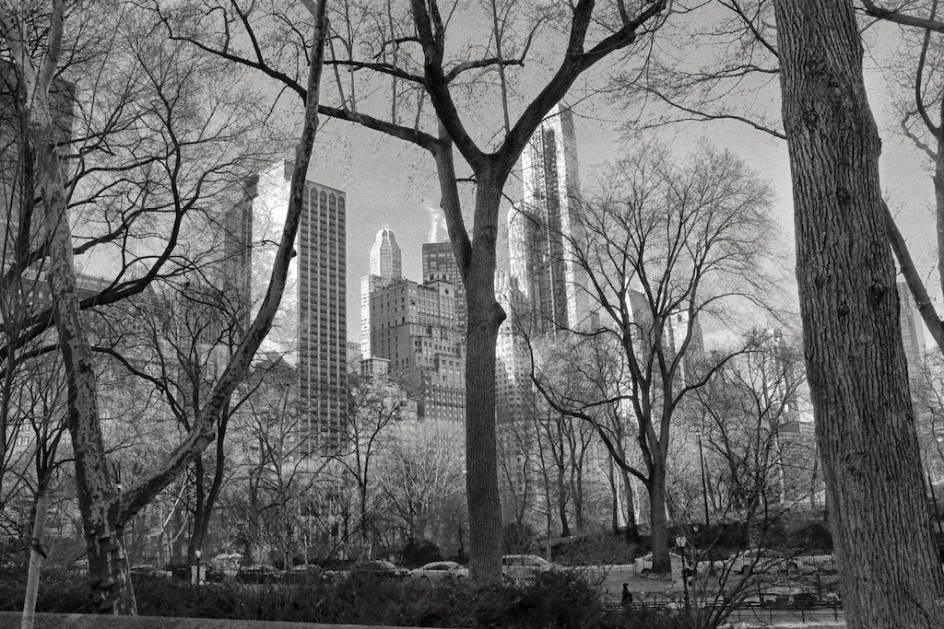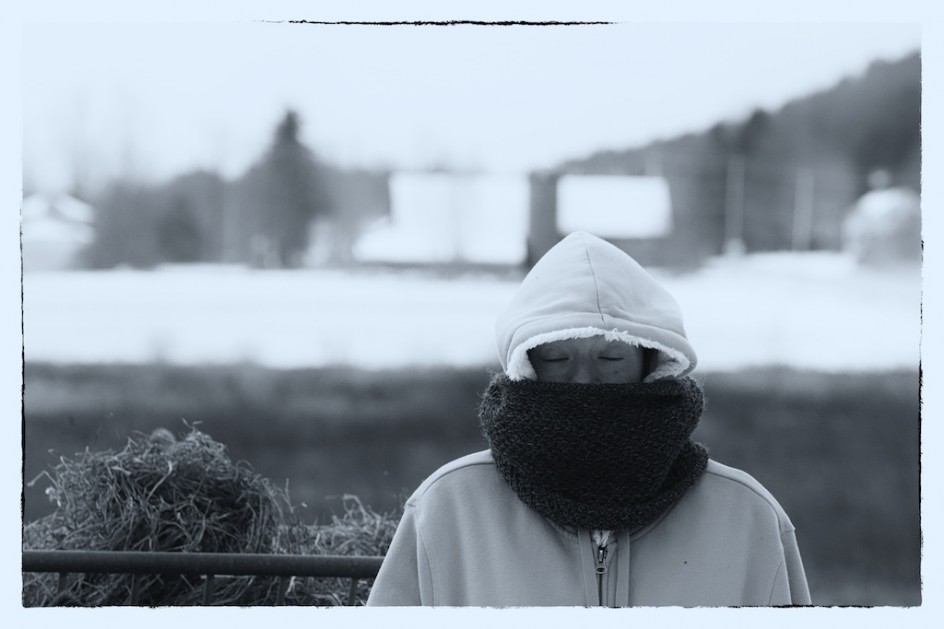
My most common reaction reading through the arguments about the Central Park horses is the perception of so many public officials and animal advocates in New York City that the work horses in the park that carry tourists and visitors ought to be banned because the horses are not happy. This, as much as any other element of the growing debate about the future of these dignified creatures speaks to the epidemic anthropomorphizing of animals that underlies the fate of these animals, and much of the polarizing arguments that halt any real dialogue about the future of animals in our midst, especially our urban landscape.
You will rarely find people who understand the real world of real animals speaking them as being happy or sad, good or bad. These are very particular human emotions, insofar as they exist in the animal world at all, it is in a profoundly different context that it applies for humans. No one who knows horses believes these mostly middle-aged older work horses think in terms of being happy or not. Or that they would be conscious of being happier out in the wild,” where many of the animal rights activists think they should be.
Animals like horses and donkeys and dogs live in the moment, they follow their instincts, not the narrative of human emotions. My donkey Simon is not pining for the wild, he wants food, shelter, and attention. He seeks comfort, stability, familiarity and security, and more than anything, the company of other donkeys. Like many domesticated animals, donkeys and horses (like dogs) thrive most on work, they are working beings, they have worked for and with humans for thousands of years, it is bred into their genes, instincts and behaviors. Working dogs like border collies are much more comfortable working with people and sheep, they show no desire to be out roaming in the wild, dodging predators, hunting day and night for good, seeking shelter from the elements, dodging hunters, developers and human intrusion.
If raccoons were being tied up and harnessed for the amusement of tourists, I would have no trouble buying the argument that this is cruel, but in fact the very solution the mayor and his supporters are pursuing is by far the crueller option – removing horses from the people and work they have known, the exercise and monitoring they receive, and traumatizing them by shipping them to “rescue” farms where they will be imprisoned without purpose or work for the rest of their lives, assuming most of them even get there, which seems dubious from the news reports emanating from New York. Old animals suffer greatly when they are moved to alien environments, it can cause them profound suffering and pain.
Happiness is a fundamental and profoundly significant word when it comes to animals, and it is the most misused and distorted, because almost anyone who uses it to describe the mood of an animal is thinking in terms of human happiness. The word just does not apply to animals, it is in our vocabulary, not theirs. Animals do not live by emotion, there is no such thing as a good dog or bad, only dogs who behave the way we want them do and dogs who don’t. We are the only species that evaluates our lives in that way, that has the language and narrative to consider our circumstance, want more money, change partners and spouses, look for other work, buy a bigger house, have more children. No serious behaviorist believes animals think in that way, or view their lives in that way.
When I think about the “happiness” of my animals, I think of these things: shelter from the cold, rain, ice, snow and wind. Healthy, nutritious food two times a day in substantial amounts. Grain and vitamins in cold or challenging weather. Attention every day – brushing, healthy snacks, attention. Work – walking, hauling, dealing with people. Good health care, exercise of some kind every day, either in walking or space to move. I do not imagine a paradise for them where they can roam freely in the elements, that is fairy tale, a projection of human values. Animals live in the moment, and by their instincts.
Animals love to be noticed and love, they feed on human attention, most horses get little, if any, the Central Park horses get a lot. Along with food and health care, that would be close to the top of my list of domesticated and working animals deserve to have.
As with so many other elements of our culture and political world, the notion of animal rights has been hijacked by unyielding and often unknowing ideologues and shallowly defined by a reactive and manipulable news media, which always succumbs to the loudest, rarely the most just, point of view.
They ought to have those things as a right, they desperately need roles to play among humans in a rapidly developing world, or they will vanish from the earth in any meaningful way. By these terms, the Central Park horses seem quite happy to me, they are content, their needs are being met and then some. My own wish for the people of New York is that every one of them live as well as the horses who are about to be exiled from the city do.
I write these columns on behalf of the Central Park Horses and all of our animals, they deserve to be spoken for, not banished.



